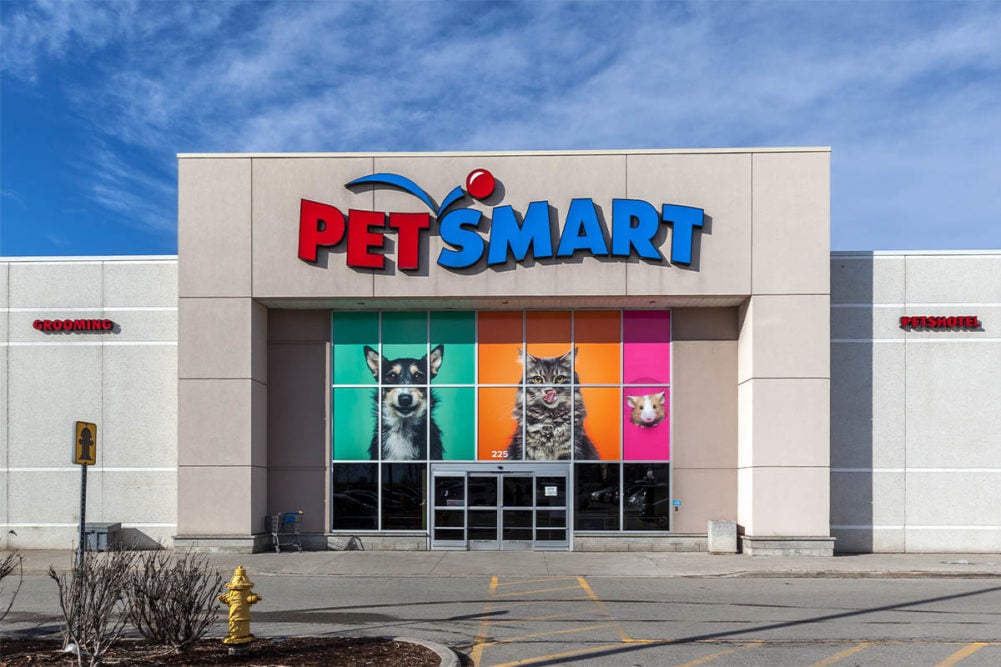Customer Stories
EIS improves business outcomes across industries by organizing data. Making it more findable, usable, and valuable.

Multinational Pharmaceutical Company Streamlines Drug Portfolio Workflow Processes
Streamlined drug portfolio workflow processes for a multinational pharmaceutical company by consolidating data sources, enhancing searchability, and improving user experience. Discover how this solution minimized manual tasks and safeguarded sensitive data.

How a Global Pharma Leader Transformed Its Digital Asset Ecosystem
A global biopharma leader transformed its digital asset management, saving $9.1 million and enhancing collaboration through a comprehensive taxonomy and centralized library.

Multinational Pharmaceutical Company Streamlines Drug Portfolio Workflow Processes
Streamlined drug portfolio workflow processes for a multinational pharmaceutical company by consolidating data sources, enhancing searchability, and improving user experience. Discover how this solution minimized manual tasks and safeguarded sensitive data.

Product Data Management Operations | Online Medical Equipment & Supplies
Online medical ordering platform diagnoses data model challenges & implements change management best practices to support scalability and growth.

Global Science Company Transitions Product Catalog from Division- to Customer-Focused
With a catalog of over a million diverse items sold globally across seven channels, this science company reorganized its offerings into a unified, customer-centric eCatalog, grouping products by similar attributes regardless of origin.

Industrial Manufacturer Establishes Roadmap to Digital Transformation
This precision instrumentation manufacturer is revamping its global business. EIS collaborated with them to assess capabilities and create a roadmap for operational restructuring.

Health Insurance Provider Streamlines Marketing Content Use and Reuse
Future business strategy and changing B2B buyer/sales models were driving the need for more insightful, reusable, and personalized content for this client. EIS helped them to create a content classification strategy for omnichannel content marketing.

PetSmart Undergoes eCatalog Overhaul, Sees Jump in Foresee Experience Index
PetSmart partnered with EIS to measurably improve the customer friendliness, product find-ability, and site shop-ability that its online experience delivers.

Multinational Conglomerate Reimagines Digital Ecosystem for Improved Customer Experience
This multinational conglomerate had a digital ecosystem consisting of thousands of fragmented and disjointed customer, partner, and employee-facing web and mobile applications. EIS was able to help align the client’s content across its many applications.

Product Taxonomy Design Delivers Best-in-Class eCommerce Experience for Industrial Supplies Website
The company had a vision for a best-in-class experience for shoppers of its online catalog of over 400,000 products. This vision depended on high-resolution product data that it needed EIS to build from the ground up.

Industrial Supplier Enhances Category Shopability by Optimizing Product Data
To continue its digital innovation strategy, this company needed help from EIS to simplify the shopping experience in categories that had hundreds of complex attributes.

Metrics-driven Governance Drives Business Results for Investment Consulting Firm
This small financial services investment advisor firm grew rapidly with a “we can do anything” culture. As a result, the company evolved with a lack of disciplined data and content management processes or technology infrastructure.
OmniChannel Selling for Fortune 50 Hardlines Retailer
With the expansive size of the organization and the vast number of applications used across the business, evolving to a unified, omnichannel enterprise taxonomy would be a major undertaking. This is where EIS came in.

World Class Product Data for Products and Components Manufacturer
This organization recognized that in order to achieve a return on investment in search and PIM, it would have to improve product data quality. EIS helped to make the whole project happen within an eight-month window to enable the beta launch of the new website.

Allstate Business Insurance Agents Speed Up Quoting with Context Sensitive Help System
Allstate needed help from EIS to create a comprehensive help system to provide quick answers to questions at the point of need, accessible from the policy quoting system.

Enhanced Medical Information Website | Bristol-Myers Squibb
This pharma client reached out to EIS for help in providing accurate and precise search results through its website to healthcare providers and physicians who submit unsolicited requests for scientific information on off-label use of their approved drugs.

R&D Knowledge Management Roadmap | Janssen
This multinational pharmaceuticals branch of the world’s largest and most diverse medical devices and diagnostics company engaged Earley Information Science to plan an Integrated Digital Platform for Knowledge Management.

Digital Information Architecture Implementation
As the product line grew for Onlineshoes.com, the task of finding the desired merchandise was becoming more complex for customers. The company needed EIS’s help with optimizing the opportunities for cross-selling.

SharePoint Navigation and Search | PCL Construction
PCL sought help from EIS to create an enterprise solution that leveraged technology advances available in SharePoint 2010 and Fast Enterprise Search, to improve usability and establish a foundation to support growth and changes over time.

Applied Materials Improves Knowledge Sharing and Reuse
AGS took responsibility for organizing the information and presenting it in a single portal, but needed assistance from EIS in developing an information architecture, including enterprise taxonomies and an ontology.
Role-Based Knowledge Management | Co-op Insurance
This major Financial Services and Insurance firm wanted EIS to help improve the quality and efficiency of IT project contributors so there was a consistent usage of this client's methodologies and approaches.

Redesigned Product Taxonomy | Vistaprint
This online products and services provider wanted to improve customer experience to increase customer conversions. As part of this effort, they challenged EIS to simplify product information management systems and operations.

SharePoint Information Security | Corning
Trade secrets, engineering knowledge and other intellectual assets give this global manufacturer a real advantage in a highly competitive, growing global market. EIS helped leverage SharePoint functionality to support a new information security model.

Integrating Multiple Search Experiences | Vanguard
This global mutual fund firm wanted help from EIS to leverage its existing search technologies and capabilities in a more structured and concentrated manner. While it had the technologies, its internal users struggled to find the right information, quickly.

Taxonomy & Information Architecture Modeling | AARP
AARP wanted help from EIS to connect a series of disparate systems and content through taxonomy and information architecture models to support an enterprise content management pilot.
Read More
Product Supply Chain Architecture | Thermo Fisher Scientific
This scientific instruments manufacturer challenged EIS to improve its web presence and customer experience by building an agile state-of-the-art content management solution that positioned it effectively in a competitive marketplace.

Content Strategy and Search Optimization | Consumer Reports
Consumer Reports did not have a single authoritative way of organizing information across the organization. EIS helped it create efficiencies that encouraged the reuse of content and information across Consumer Reports Online.

DAM Framework, Design and Deployment | American Greetings
American Greetings came to EIS with problems including inability to locate assets, duplicated efforts, inefficient processes, inconsistent organizing principles, and poor data quality.
Read More
FAST & SharePoint Search Application Roadmap | Franklin Templeton Investments
Franklin Templeton Investments wanted help from EIS to provide greater value to the business by improving access to information for a range of business functions. This helped the organization realize greater value from technology investments.
Read More
Information Management Strategy & Architecture | The Ford Foundation
Multiple systems, tools and processes had inconsistent metadata and needed a coherent integration approach for The Ford Foundation. It challenged EIS to create a comprehensive knowledge, content, and information management strategy.
Read More
Optimized Ecommerce Taxonomy Design | Worldwide Industrial Supplier
A complex set of internal players was driving taxonomy design leading to overly complicated attributes. Taking a data driven design approach got everyone on the same page.
Read More
Improving Knowledge and Resource Sharing | The World Bank
The World Bank needed a metadata strategy to organize content and knowledge resources. EIS was challenged to improve findability of content and allow for consistent integration of a variety of systems.
Read More
Product Data Management and Governance | Amway
Amway’s challenge was to harmonize product information (formulations, specifications, artwork, and manufacturing instructions) across multiple enterprise systems and organizations.
Read More
Taxonomy & Navigation Assessment | Walmart
Walmart challenged EIS to improve its website customer experience through a more effective organization of navigational taxonomies, a better choice of category labels and more targeted tagging of metadata attributes.
Read More
Improved Faceted Search & SEO | Urban Land Institute
The EIS team evaluated the existing taxonomy, and designed a new taxonomy structure, along with governance policies and procedures to upgrade Urban Land Institute’s information architecture.
Read More
SharePoint Information Architecture & Taxonomy | Jack in the Box
EIS was challenged to improve the ability to deliver high quality and relevant information to Jack in the Box’s 2,200+ corporate owned and franchise restaurants.
Read More
Global Metadata Strategy & Governance | Pearson
EIS came in to help enable the organization to adapt to the rapidly shifting landscape of new technologies, new customer behaviors, and dramatic changes in the evolving competitive content ecosystem through a new metadata strategy.
Read More
Search Optimization Technical Audit | Bed Bath & Beyond
There was a lack of balance in navigational categories with inconsistent and un-user-friendly labels, causing customers to experience difficulty finding certain products. The EIS team analyzed several items that would determine success.
Read More
Taxonomy for UX, Faceted Web Search & Navigation | Best Buy
Best Buy experienced a lack of balance in navigational categories with inconsistent and un-user-friendly labels. It needed help from EIS to make certain products easier to find by customers.
Read More
Taxonomy, Navigation & Faceted Search Assessment | JCPenney
JCPenney desired improvements in product hierarchies and attributes based on best practices in taxonomy. EIS conducted an analysis of department taxonomies against a list of 30+ best practices in structure, labeling, balance, and leveraging of taxonomy.
Read More
Improved Patient Safety Process Coding | CRICO
CRICO needed to conduct a 360 review of its existing patient safety code sets and coding workflows. Through a combination of working sessions, interviews, and content audits, EIS developed a new patient safety conceptual framework model.
Read More
Foundational Taxonomy Facilitates Knowledge Sharing | Department of Health & Human Services
The Department of Health & Human Services needed to support the Health Information Technology Act by providing a knowledge sharing environment that had a robust knowledge domain taxonomy.
Read More
Product Data Quality & Taxonomy Alignment | Target
Large-scale content from suppliers and manufacturers must be repurposed for retail websites, catalogues and merchandising. Normalizing and improving this content for the ultimate customer is a major challenge.
Read More
Enterprise Taxonomy Enables Knowledge Portal | The Jackson Laboratory
The Jackson Laboratory has grown to be a leader in research, education, and support for scientists and the public. Jackson understood the critical need for a taxonomy in its strategic plan for enterprise content management.
Read More
Global Taxonomy & Content Management | Motorola
Imagine deploying anything accurately and consistently across 63 countries and in 23 languages. The goal was to allow the client to manage its content and maintain it across multiple business units.
Read MoreEnterprise Content Management | AOC - State of California
The State of California Courts System is the largest single court system in the world. As the California court system grew exponentially, problems also grew.
Read More
Content Management Strategy | Global Financial Services Company
It would be logical to assume that a highly successful Fortune 10 financial services company would have considerable and consistent control of its business content. But that was not the case.

Unified Content Architecture | Big Four Auditor
Unified architecture for delivering content based on user context improves this big four auditor's user experience, business process, and quality of work.
Read More